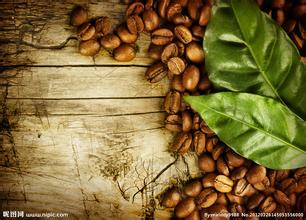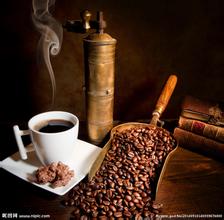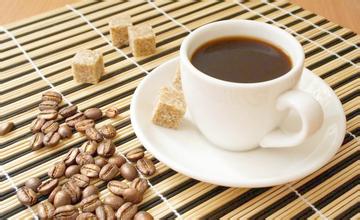Ethiopian coffee treated with water to introduce boutique coffee
Ethiopian sun beans are generally G3--G5, but they are G2 (I will open a new post for Ethiopian coffee beans), which is equal to the grade of washed beans. Although there are still a few defective beans, they are commendable compared to the sun beans of Harald and Sidamo. The bean is baked before the second explosion and is brewed by hand and siphon. When grinding the beans, you can smell the sweet smell of sun fruit, and there is also the citrus and jasmine fragrance that is the signature of Yega snow caffeine. It tastes like the three-in-one flavor of Harald, Yemeni mocha and Yega snow coffee water washing beans! Sun Jie Jia Xue coffee sets a strict standard for collecting red fruits (as a result of coffee trees). Before exposure to coffee fruits, unripe green fruits or defective fruits are removed manually, and then damaged or moldy fruits are removed during the sun drying process. after two weeks, the sugar and essence of the flesh and essence seep into the coffee beans, the water content is reduced to 12%, and then scrape the hardened pulp, pectin layer and pods with a planer. Take out the coffee beans and test the density and color of the beans. After eliminating the defective beans, finally, the workers picked out the defective beans with the naked eye and screened them layer by layer, resulting in the cleanliness and vulgarity of Yejia snow beans, which has a strong charming fruit fragrance. It is a small town with an altitude of 1700 Mel 2100 meters above sea level, which is also synonymous with Ethiopian fine beans. It has been a wetland since ancient times, and the ancient saying [yirga] means "settle down], and [cheffe] means [wetland], so [Yega Xuefen] means [let us settle down in this wetland]. It is one of the coffee producing areas with the highest average elevation in Ethiopia. Yejia snow caffeine is washed with water, but there are also a small number of excellent beans engraved in the sun to enhance the charming fruit aroma and mellow thickness. Coffee trees are mostly planted in farmers' own backyard or mixed with other crops in the field, the yield per household is not much, it is a typical rural coffee. These mountain villages are foggy, like spring all year round, with a gentle breeze in summer, cool but not hot, rain but not damp, and no cold damage in winter, giving birth to a unique flavor of citrus and flowers. The so-called 'Yejia Snow Flavor' refers to the strong aromas of jasmine, lemon, peach, almond and tea.
The author's tasting experience has only one sentence: coffee entrance, flowers in full bloom! Just like a flower touches the comfort of taste buds and olfactory cells in the nasal cavity. In addition to the fragrance of the flowers, the delicate mellow thickness (body) is like silk massage in the mouth. Traditionally, Yega snow coffee is treated by the oldest sun treatment, but in 1972, Ethiopia introduced water washing technology from Central and South America in order to improve its quality, which made its jasmine and citrus fragrance clearer and more refined. It has become the best quality bean in the world, thanks to its superb washing technology. Since the 1970s, this area has been mainly washed, becoming the most popular water-washed bean producing area in Egypt.

Important Notice :
前街咖啡 FrontStreet Coffee has moved to new addredd:
FrontStreet Coffee Address: 315,Donghua East Road,GuangZhou
Tel:020 38364473
- Prev

The citrus flavor can be called the best Ethiopian coffee in the world.
Even the official research unit of Ethiopia does not know how many Arabica subspecies there are in Ethiopia. The coffee cooperatives in this mountain are certainly different from those planted in another mountain, and even small farmers in the same region grow different varieties of coffee. It has been estimated that there are at least 2000 varieties of Ethiopian coffee and even more than 4500 kinds of coffee. Compared to the southern neighbor Ken
- Next

Soft, fragrant, full-grained Rwandan coffee beans introduce boutique coffee
Rwanda has been growing coffee since colonial times. Although the crops are mainly coffee, the quality of coffee produced in Rwanda is not outstanding, and its status in the coffee world is low, and few people pay attention to it. Most of the coffee varieties grown in Rwanda are bourbon. Rwanda, known as the country of Thousand Hills, has a high-altitude mountain environment, fertile volcanic soil and abundant precipitation.
Related
- Does Rose Summer choose Blue, Green or Red? Detailed explanation of Rose Summer Coffee plots and Classification in Panamanian Jade Manor
- What is the difference between the origin, producing area, processing plant, cooperative and manor of coffee beans?
- How fine does the espresso powder fit? how to grind the espresso?
- Sca coffee roasting degree color card coffee roasting degree 8 roasting color values what do you mean?
- The practice of lattes: how to make lattes at home
- Introduction to Indonesian Fine Coffee beans-- Java Coffee producing area of Indonesian Arabica Coffee
- How much will the flavor of light and medium roasted rose summer be expressed? What baking level is rose summer suitable for?
- Introduction to the characteristics of washing, sun-drying or wet-planing coffee commonly used in Mantenin, Indonesia
- Price characteristics of Arabica Coffee Bean Starbucks introduction to Manning Coffee Bean Taste producing area Variety Manor
- What is the authentic Yega flavor? What are the flavor characteristics of the really excellent Yejasuffi coffee beans?

